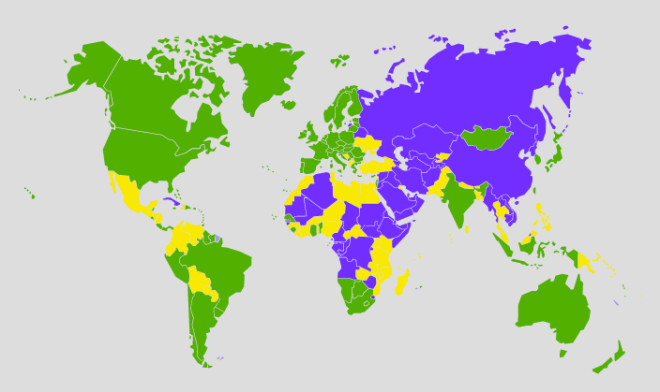The International Budget Partnership (IBP) has recently released the results of the Open Budget Survey 2012, which measures “the state of budget transparency, participation and oversight in 100 countries around the world”. In the survey report, the authors highlighted the positive relationship between budget transparency and democracy:
A democratic political system is a significant factor that supports budget transparency (…) In fact, a switch from autocracy to democracy is typically associated with an improvement in a country’s OBI score by almost 20 points, after controlling for other variables. In addition, transparency seems to depend much more on current levels of democracy than on how long a country has been a democracy: for countries in transition, this means that rapid improvements in transparency can be achieved without having to wait for slow processes of learning and adaptation.
This adds to a growing body of literature showing that democracies (and electoral competition) are indeed more transparent than other types of regime. If the relationship between democracy and openness comes across as obvious, it also opens space for some questions about the open government movement and its strategy to promote transparency.
Transparency, it seems, is one of the vital signs of well-functioning democracies. Chronic lack of transparency, on the other hand, emerges as the symptom of flawed democracies or authoritarian regimes. If this logic is correct (and the evidence suggests it is) advocating for transparency would correspond to treating the symptoms of a disease, rather than preventing it in the first place.
This is not to say that promoting transparency reforms (e.g. open data, open budgets) is a useless act. Treating a symptom is not a problem in itself: it alleviates the pain and may even prevent further complications. But neglecting to treat the cause of the symptom is surely a bad practice.
This begs a fundamental question: are open government advocates efficiently channelling their energy and resources when asking for more transparency from governments that have little or no inclination to democracy? Or are they failing to strike a balance which combines a focus on transparency with more fundamental reforms that promote, for instance, free, fair and competitive elections?
Granted, transparency and democracy are mutually reinforcing: it is difficult to think of a democracy without informed consent. And even well-established democracies still have a long way to go towards more transparency. But, for instance, going as far as considering that open government may blossom in non-democracies seems questionable to me. All the technology and transparency in the world is unlikely to realize its full potential in the absence of fundamental political rights and civil liberties.
It might be time to start focusing on the role that political regimes play in promoting values that are dear to the open government movement, such as transparency, participation and collaboration. And democracy – or lack thereof – is the elephant in the room.
***
Further reading

Thanks for making me more aware of the relationship between economics and a healthy democracy:)
On Thu, Mar 7, 2013 at 7:44 AM, DemocracySpot
Georgianna,
Thanks for you comment.
Personally, I prefer not make claims on the relationship between economics / democracy. As far as l know, the causal mechanism is not as straightforward as it might seem at a first glance, and there is not a well established consensus in the literature with regards to that.
Pingback: Open Budgets in Africa: Tokenistic? | DemocracySpot
Pingback: Why ‘I-Paid-A-Bribe’ Worked in India but Failed in China | DemocracySpot
Pingback: 10 Most Read Posts in 2013 | DemocracySpot
Pingback: Has Democratization Reduced Infant Mortality in Sub-Saharan Africa? | DemocracySpot